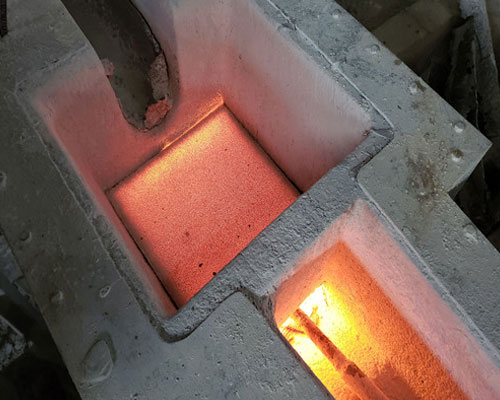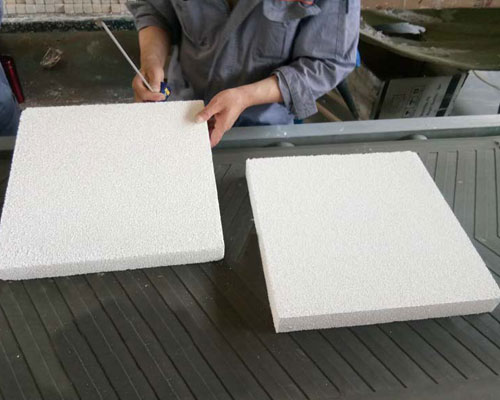Ceramic foam filters for foundries can filter solid slag, such as metal oxides contained in molten metal, thereby improving the quality and output of aluminum alloys. Therefore, the use of ceramic foam filters has promoted technological progress in the foundry industry.
The ceramic foam filter uses a porous design to treat molten aluminum that needs to be purified. This type of filter is usually used in the aluminum casting industry and can be used in aluminum alloy casting. It can not only effectively filter and remove impurities in liquid metal, but also has a great effect on improving the purity of metal substances. The overall operating efficiency of this equipment can be greatly improved, and the casting effect is also very stable.
Alumina foam ceramic filter is a phosphate-free high alumina-based product with high porosity and mechanochemical stability, and has excellent resistance to thermal erosion and corrosion of molten aluminum, which can effectively remove inclusions and reduce The trapped gas provides laminar flow to filter molten aluminum during laminar flow, and it is processed to strict dimensional tolerances during the production process. This combination of physical properties and precise tolerances makes it the first choice for molten non-ferrous metal filtration.

Alumina ceramic foam filters are widely used in the filtration of molten aluminum in primary and secondary aluminum foundries. Ceramic foam filters can provide better quality in molten metal filtration. They are made of impregnated foam with an open-cell structure, which provides excellent filtration. The filter provides an effective solution for removing oxides and non-metallic particles from a variety of non-ferrous metals.
Removal of inclusions makes the metal more fluid, which makes the mold filling easier, the casting structure is better, and the thin section casting ability is better. Removing inclusions and other non-metallic debris from the melt will reduce mold welding and mold-metal interaction, thereby reducing mold surface and service life.
Alumina ceramic foam filters can reduce tool wear and improve productivity. Inclusions can nucleate pores and produce hot tearing during the solidification process, causing surface defects, impairing appearance, and often reducing mechanical properties. In many cases, filtration reduces waste for these reasons to almost zero.

